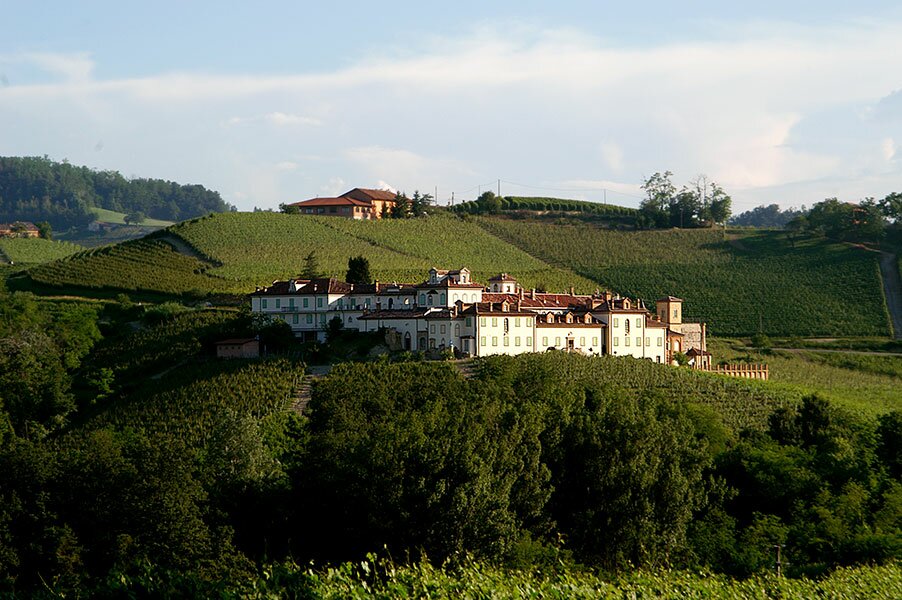Franco Conterno admits that it gets quite confusing — there are a few renowned Barolo producers in Langhe, Piedmont that uses the Conterno family name. But with their individual philosophies on winemaking, they’ve each made significant contributions to the history of Barolo making.
Poderi Aldo Conterno was established in 1969, when Aldo Conterno, the second son of second-generation winemaker Giacomo Conterno left the family estate. Then run by his older brother Giovanni, the family winery was known for being traditionalist in their winemaking philosophy. The split was fuelled by Aldo’s desire to adopt what was then, more modern innovations such as shortening the maceration time and the earlier pressing of skins. Today, Poderi Aldo Conterno is run by another set of brothers, Aldo’s three sons: Franco, Stefano and Giacomo.

(Image courtesy Polderi Aldo Conterno)
“When you work with family, there’s a lot of positive things but compromise is very important,” muses Franco. The most extroverted of the trio, Franco does most of the travelling and networking required of marketing the brand. Giacomo is the man behind the figures and operations, while Stefano devotes himself to tending the vineyards and winemaking. “The [work in the] winery is 360 degrees; from the vineyards, to the cellar, to the outside world, to promote the wine, it’s difficult for one person to do everything. We are three brothers with very different characters so we can split the workload and do what we love. We are fortunate to have found the right fit for all of us; now we work like a well-put-together machine.”
The estate’s 25 hectares of vineyards are located in the Bussia Cru, all considered to be some of the very best plots in all of the Langhe. The soils are sandy and clayey-clacareous, rich with calcium carbonate and iron, typical of the region. The vineyards are farmed organically although Franco says “it’s not important for us to be certified”. He reassures, “The biggest client of our wines is my family so of course we need the wines to be good and safe. To be honest, what we call organic today is what traditionally my grandfather did naturally in the past; why do we need a certificate to say that we’re going things exactly like we did in the past? If you don’t trust me, then don’t drink my wine.”
Of the brand’s four Barolos, three are single vineyard expressions: Romirasco, Cicala, and Colonnello. The Gran Bussia is the top of their range, made only in selected years, out of a blend of the best grapes from the three vineyards. All fruit is strictly hand harvested and in the cellar, fermentation occurs in temperature-controlled stainless steel tanks. The four Barolos are vinified similarly: fermentation and maceration in horizontal fermenters last two to three weeks, depending on the vintage; wines are then aged in Slavonian oak casks ranging from 25 to 75 hectoliters; wines go through no filtration or clarification, are naturally stabilised before racking.
Currently the estate produces about 80,000 bottles annually. “In the past, we produced 180,000 bottles a year, but after 2000, we decided to focus on quality and cut production to 80,000 bottles. We have no intention to increase production as to do so means we have to buy more vineyards. We love Bussia and want to stay here. If there is any vineyards to buy here, it’s not at the same level of what we already have; we own the best [vineyards] in Bussia,” says Franco.

(Image courtesy Polderi Aldo Conterno)
Outside of the Gran Bussia, Franco professes that the Il Favot is his favourite wine of theirs. “We love Il Favot, it’s a Langhe Nebbiolo that uses our youngest vines, younger than 15 years old. The winemaking philosophy behind the wine is a blend between tradition (100% Nebbiolo) and modernity (the use of French oak barriques). The sweeter tannins from the French oak, and the wine’s assessable price point, give younger drinkers the familiarity and opportunity to start approaching our wines. If they like our winemaking philosophy, and if they want, they can move up to drinking our Barolos.”



